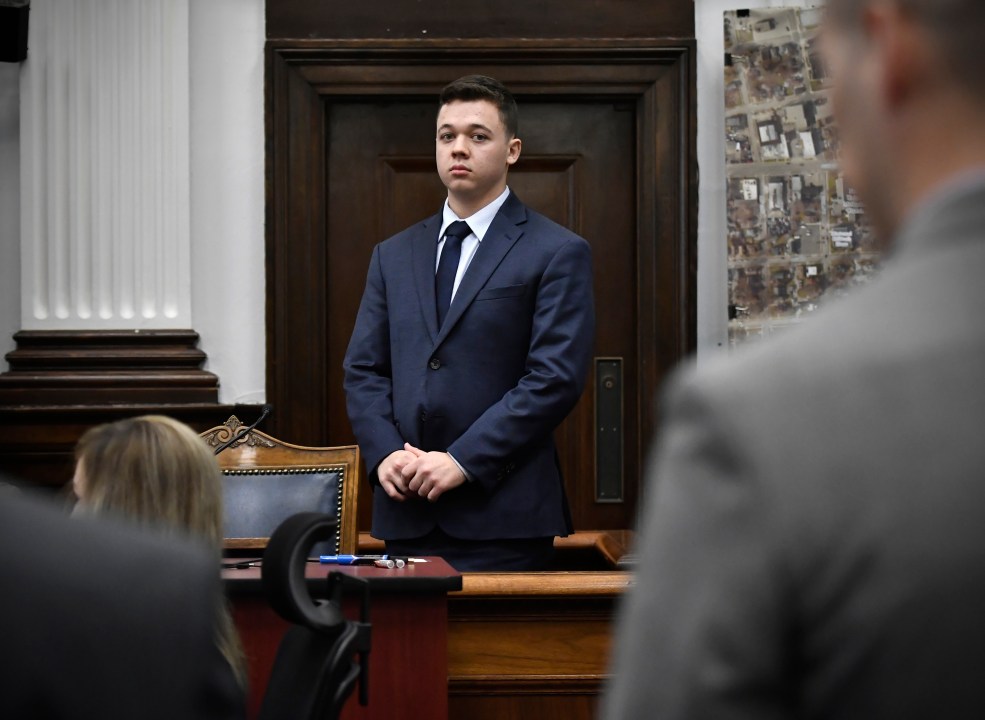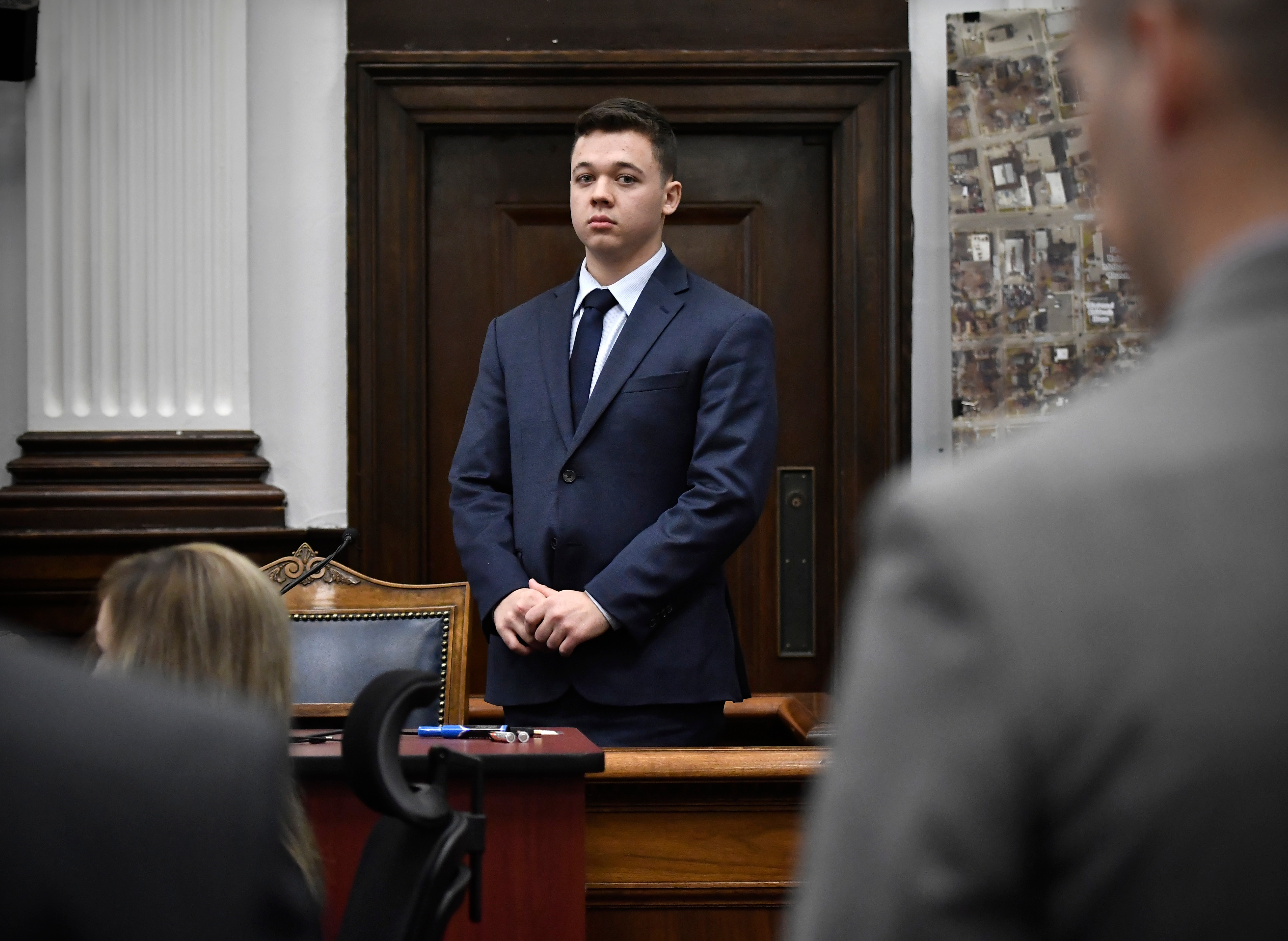On the night of 25 August 2020, Richie McGinniss, a somewhat gonzo video journalist, interviewed Kyle Rittenhouse for the right-wing Daily Caller website. Rittenhouse wore his cap backwards, had rubbery purple medical gloves on and an assault rifle dangling between his legs. He had decided for some reason that he, a 17-year-old boy, had to help the forces of law and order during the Black Lives Matter riots in Kenosha, Wisconsin.
‘People are getting injured,’ he said. ‘If there’s somebody hurt, I’m running into harm’s way. That’s why I have my rifle because I need to protect myself, obviously. I also have my med kit.’
Around two hours later, the reporter McGinniss was on his knees, topless, frantically wrapping his t-shirt around the skull of a man whom Rittenhouse had shot in the head. Rittenhouse ran away down a street. Another man whacked him in the neck with a skateboard. Rittenhouse shot him dead. Another pointed a handgun at him. Rittenhouse shot him in the arm.
The whole story speaks to the madness that gripped America in the weeks following the murder of George Floyd
Rittenhouse’s trial, which just ended, has become a source of international fascination. Did he act in self-defence, given all his victims attacked him first? Or did his recklessness provoke the initial violence? We’ll know the jury’s verdict soon enough.
The most intriguing questions are psychological, however: how did a white teenager convince himself that he needed to become an armed emergency first-responder at a race riot? How did this nerdy mummy’s boy go from scrubbing graffiti off a school building to shooting a man in the head in a car park hours later?
The whole story speaks to the madness that gripped America in the weeks following the murder of George Floyd in Minneapolis, Minnesota. That summer, with the possible re-election of Donald Trump approaching in November, America felt as if it was falling apart.
This was the Black Lives Matter moment, when a movement that believes white supremacism still dictates every aspect of American life suddenly took charge of the global discourse.
Riot followed riot. Black Lives Matter and ‘antifa’ thugs, many of them white, smashed up neighbourhoods, burned businesses, ruined lives. But most journalists, fixated by their hatred of Trump and the people who voted for him, decided to portray these outrages as cries of pain from distressed black people in a profoundly racist society.
This led to those now famously absurd clips of CNN reporters standing outside burning buildings and calling the scenes ‘largely peaceful protests.’ Rather than appeal for calm, senior Democratic politicians threw petrol on the bonfire. Kamala Harris, the now vice president, tweeted a link to a bail fund ‘for those protesting on the ground.’
Progressives will say that the right-wing media, in particular Fox News, didn’t cover itself in glory, either in those days, focusing on the sensational violence and ignoring the actually peaceful protestors. There may be truth in that, but news organisations can’t always be blamed for covering explosive stories at the expense of calm ones. And no sane commentator can seriously pretend that the violence committed in the name of BLM was insignificant.
Yet all these various viral media insanities channelled their way into the minds of Kyle Rittenhouse and indeed the minds of his victims, all of them white. The victims were looking for trouble, no doubt. At some level, however, they too considered themselves on the side of angels — fighting the man in a fascist-racist society.
Rittenhouse, for his part, was not the wannabe Nazi the media frantically made him out to be that summer. He was a misguided boy with access to a dangerous weapon. He felt he had to step up and protect the community he worked in because the usual mechanisms of law and order had broken down. He wasn’t altogether wrong.








Comments